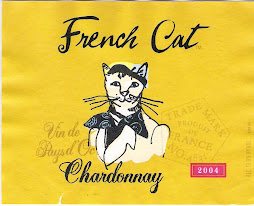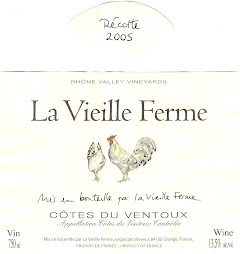
I ran up against my own concern that I my tasting apparatus was not good enough to be a wine blogger. I mean, I was thinking that I needed to be able to sprout “I taste hints of chocolate and tobacco.” I have rarely tasted anything of the kind. I don’t think many people have.
I did recall that I read one woman wine writer talk about her own struggles with tasting descriptions. She advised that anyone wanting to describe wines needed to arrive at their own language. She also noted that a wine taster need to taste many wines to realize the differences. I must admit that I am not tasting that many wines. I also wondered if having your own “language” really made it possible to communicate your experience to other people. Do you, I mean you, the reader sitting there now, know what tasting hints of tobacco means. My experiences with tobacco were moderately negative.
Another function of a good palate is taste memory. I seem to have a taste memory for wines, but I do not have a lot of confidence in it. I should. It does work. But, again, I do notget a lot of exposure in a short period of time.
On the other hand, I taste to drink (hence, in a limited way, the title of my blog). I am recording my experiences of the inexpensive, cheep, wines I find, as they work with food. I am drinking the stuff with food and noting the experience. That is the context of the
 blog. It does not matter how the wine tastes by itself. The first sip might have all kinds of nice things going on, but conflict with the meal, any meal, and thus it really fails as a wine. Wine is food.
blog. It does not matter how the wine tastes by itself. The first sip might have all kinds of nice things going on, but conflict with the meal, any meal, and thus it really fails as a wine. Wine is food.So that is the bottom line. I am talking about wine as food, not some snack item. I am not going to try to discuss a wine by itself.
I think that this is what most people really want. Probably many people may think that the sip and spit tasters have some great insight into wine that is greater than their own, and then they may wonder why they are having trouble when it comes to enjoying wine with their meals. I suggest that your paragon of wine knowledge become the good restaurant sommelier, who will talk about a wine and how it works with your selected entree. Wine is food. Anyone who is not talking about wine in that context does not seem to get it, as far as I am concerned.
Yet, hopefully without shooting myself in the foot, I do have some wine idols of my own, who are not discussing wine as I am suggesting. And, they use numbers, you know, “this wine is an 87”! I guess my excuse is that their breath of knowledge across the ocean of wine in our world (a very good thing), gives me some idea of what to avoid. I look to these writers to shield me from wines that are poorly made and uninteresting. I do not get too excited by the “90” points divide. I am primarily concerned in avoiding the bad ones.

I also throw out any relation between price and quality, especially in the $5 to $50 range, and especially wines from California. There are a lot of wonderful wines below $10. My suggestion, get to know those wines, and then, as you buy higher priced wines, compare them to your $5 wines. If the higher priced wine is not that much better, don’t buy it again, and tell the world. You can start here.
So my conclusion is that my original purpose is solid and I was worrying about something that is inconsequential. Anyone who thinks that wine is only the first couple sips is anyone who is in the same world as I am, or better, is just out of touch with what wine really is.
With that off my chest and resolved, I shall go back to making entries here.








No comments:
Post a Comment